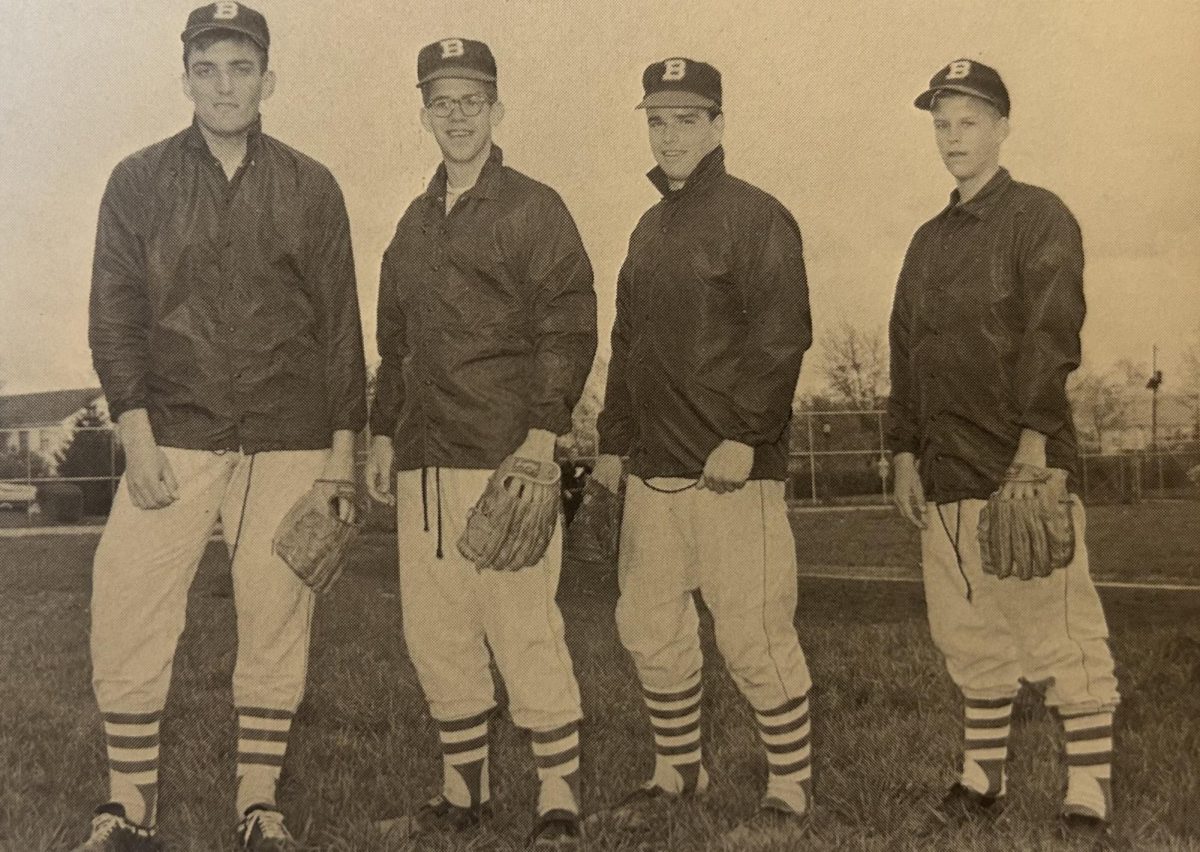Sixty-four empty lines stare at you: a signal that March Madness has finally begun. Though creating a perfect bracket is an unrealistic endeavor (the NCAA says the odds are about one in 9.2 quintillion), a good bracket can earn one bragging rights with friends and family—not to mention the occasional cash prize, too.
So, how does one pick the perfect bracket? For decades, experts and college basketball fans alike have attempted to answer that question, yet everyone has a different strategy.
Math teacher and Bishop Hartley assistant basketball coach Issac Klopfenstein explained that he believes the best picks are coaches and teams with winning track records.
“I’ll take Jay Wright at Villanova, and I’ll take Izzo at Michigan State,” he said. “Those guys that just have a tradition of toughness and wins in the tournament.”
Choosing the “safe upsets” is also a good strategy, Klopfenstein explained. He added that almost every year, a 12 seed upsets a five seed, and losing out on those picks is devastating. Listening to the experts and reading up on the teams is also crucial to creating the best tournament bracket, he added.
“I do more research online than watching the actual games,” Klopfenstein explained. “There’s always a good pick that comes from it.”
Junior Lily Cochran said that they believe watching throughout the regular season is the most important factor in creating the best bracket.
“I’ll turn on ESPN and watch quick clips, and it really reveals the team’s strategy, and it usually works out,” Cochran added.
They said that the more time and work one puts into watching the season, the easier their picks become.
Math teacher Keary Ryan explained that he looks for the outcomes that have a high probability of happening and that others may not pick.
“If I see a six versus 11 game, I’m picking the 11 all day long,” he said. “I don’t care who they are, I don’t care what I saw when they played.”
Using statistics is the best way to separate yourself from the others, Ryan added.
“It’s just a straight number game with me,” he explained. “Very little of it is my intelligence with basketball.”
Similarly, Klopfenstein said he uses his math background to gain an edge over others. He added that the best way to pick up points on other competitors is by using upsets to your advantage.
Ryan said that using the odds that Las Vegas puts out is also a major factor that goes into creating his brackets. By looking at spreads and seeing what teams other people pick, one has a better ability to see what’s a popular pick and what’s a sleeper pick, he said.
“If 80% of people think the one, just take the other no matter how illogical it seems,” Ryan said. “If Vegas thought it was a bad bet they would lower the spread, but when the spread stays, that’s the smart bet.”
According to Business Insider, the higher ranked seed does not always correlate to the best pick. In 24 of the past 28 years (data collected before the 2021 tournament), teams ranked two through four have lost in the first round of the tournament.
Business Insider explained that over the past 28 years, the average sum of the Final Four seeds has been around 11. This sometimes translates to two top seeds, a No. 3 and a No. 6, or any other number of combinations.
Other participants in March Madness bracket-making, such as sophomore Stanford Brandt, think crafting the best bracket doesn’t have to be so scientific.
“When I was younger, I would create my bracket based off of the mascots,” he said. “I’d pick whatever I thought was the coolest.”
Finding a good pick based on a mascot wasn’t hard to come by, as teams like the Duke Blue Devils and Kentucky Wildcats have great mascots and usually make it far, Brandt added.
For junior Morgan Brown, future college decisions hold a heavy influence on the teams she chooses, she explained.
“I pick the schools I like and want to go to,” she said. “It may not be the best seed, but it’s all kind of random, so it might just work out.”
Prejudice against certain schools in the tournament also plays a big role in which teams are picked to go far and which are not, Cochran said.
“I really dislike Ohio State, so they’re always going to lose early in my bracket,” they explained. “I pick Purdue because I like them, so there is bias there.”
At the end of the day, Klopfenstein explained creating a perfect bracket is nearly impossible.
“I’ve seen the odds and it’s astronomical,” he said. “I’d be better off trying to win the lottery twice in my lifetime.”















